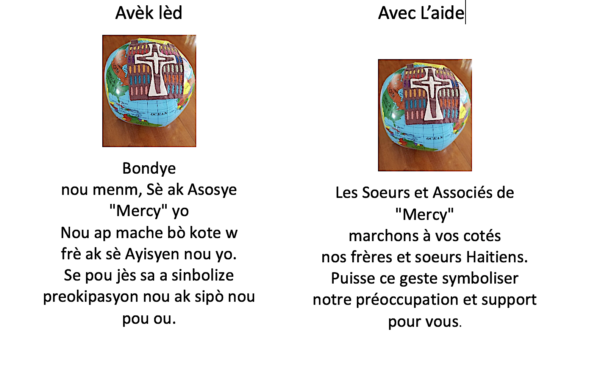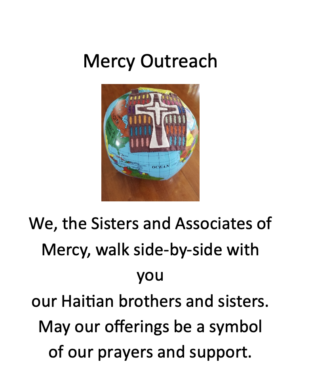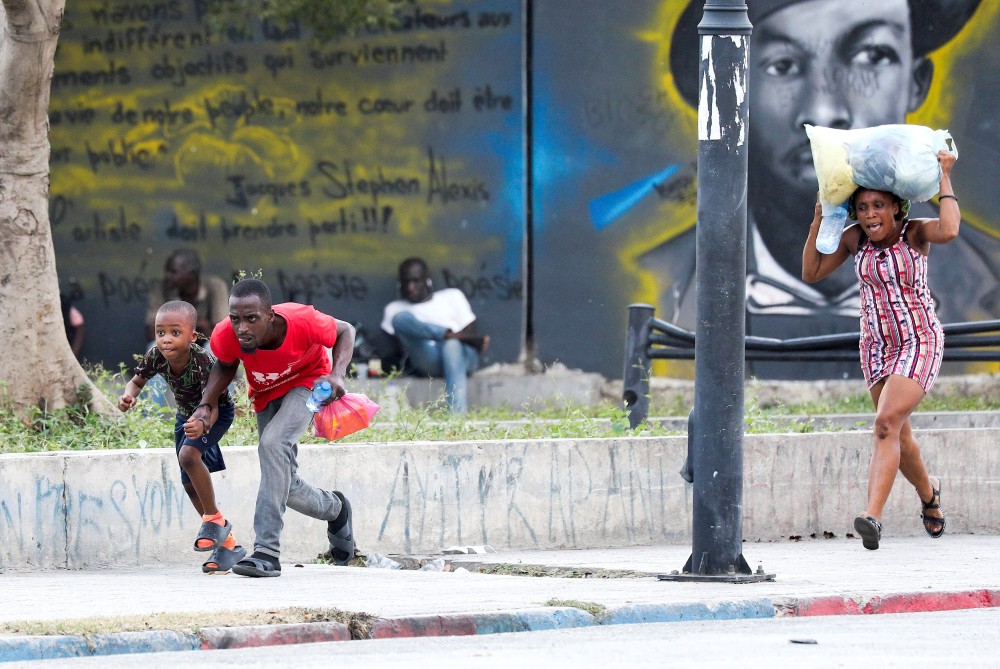
WHITESTONE — Marie, a 30-year-old sales professional, recalls riding to work with other passengers in her hometown of Port-au-Prince, Haiti when bullets peppered the car.
Gang members were fighting nearby, but the vehicle absorbed the slugs in the crossfire. The driver was wounded, and another person’s ear was cut, but everyone survived, Marie said.
Many others have not, according to her cousin, Alain. The 26-year-old computer technology specialist told The Tablet how he was walking to work one day when another pedestrian fell dead before his eyes in a swarm of bullets.
“We have seen a lot of dead bodies on the streets and sidewalks,” he explained. “It wasn’t safe for us to live there.”
According to Alain, gun noise is something people in Haiti deal with every day.
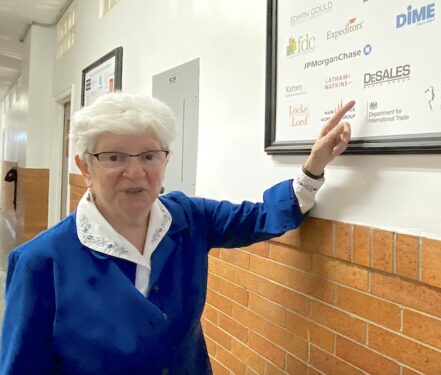
The cousins, both college graduates in Haiti, resolved to leave Haiti for Brooklyn, where family members sponsored their entries through a Biden-Administration emergency travel program.
Aiding their trek were the fervent prayers of retired Sisters of Mercy at their convent on Parsons Road in Whitestone, Queens, plus other homes in Floral Park, Queens and Brooklyn. Sister Betty Calfapietra, a retired educator, steered the effort.
She is a volunteer librarian and board member at Cristo Rey Brooklyn High School, housed at the former Catherine McAuley High School in East Flatbush.
“One of our staff at Cristo Rey Brooklyn had me praying for her niece and nephew who were trying to escape Haiti,” Sister Betty said. “Their three-day trip had a few dangerous spots in it.”
Marie and Alain are not the cousins’ real names. The Tablet has agreed to use pseudonyms because both feared that any publicity could potentially subject them to backlash in the U.S. and their homeland. Alain added that publicity could also endanger family and friends.
“In Haiti, they extort everybody,” he said. “For $2,000 or $3,000, they will extract a member of your family.”
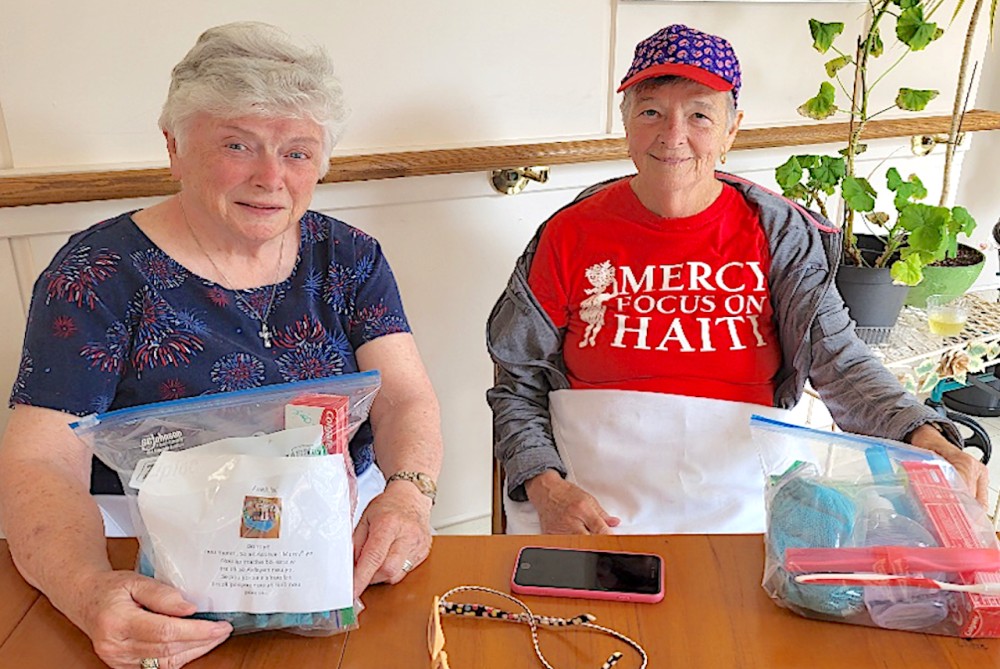
The details shared by the cousins are typical of the daily turmoil heaped upon innocent Haitians.
The violence has grown concurrently with natural disasters like the earthquake in 2010. Then came another quake, a hurricane — the 10th since 2000 — and the assassination of President Jovenel Moïse, all in the summer of 2021.
Haiti fell deeper into lawlessness, and as government institutions crumbled, the void was filled by violent gangs jockeying for control, power, and wealth.
The United Nations reported in May that “with powerful gangs controlling much of the capital, Port-au-Prince, the months of January and February 2024 have been the most violent in the last two years, with over 2,500 people killed, kidnapped, or injured since the start of the year.”
Father Rigaud, now the pastor of Our Lady of Miracles Parish in Canarsie, was stranded in Haiti for several weeks after his father’s funeral on Feb. 17 in the priest’s hometown of Les Cayes.
The cousins are not related to Father Rigaud, but like him, they sought flights to Brooklyn from Toussaint Louverture International Airport in Port-au-Prince.
Gangs, however, seized the airport to block a return flight of Prime Minister Ariel Henry, who had been out of the country at the time. Henry later resigned, but ongoing chaos kept Father Rigaud and the cousins from leaving Haiti from Port-au-Prince.
The next option was about 120 miles away at the Cap-Haïtien International Airport on Haiti’s north coast. Travel options within Haiti included National Roads 1 and 3.
Father Rigaud chose to avoid both and went across the southern coast of Hispaniola, the island shared by Haiti and the Dominican Republic. From Les Cayes, he continued east and over the border into the Dominican Republic, where he caught a flight to Newark from the capital city of Santo Domingo.
The cousins, meanwhile, chose the northern route to Cap-Haïtien, but National Road 1 was shut down because of rampant gang activity, Alain said.
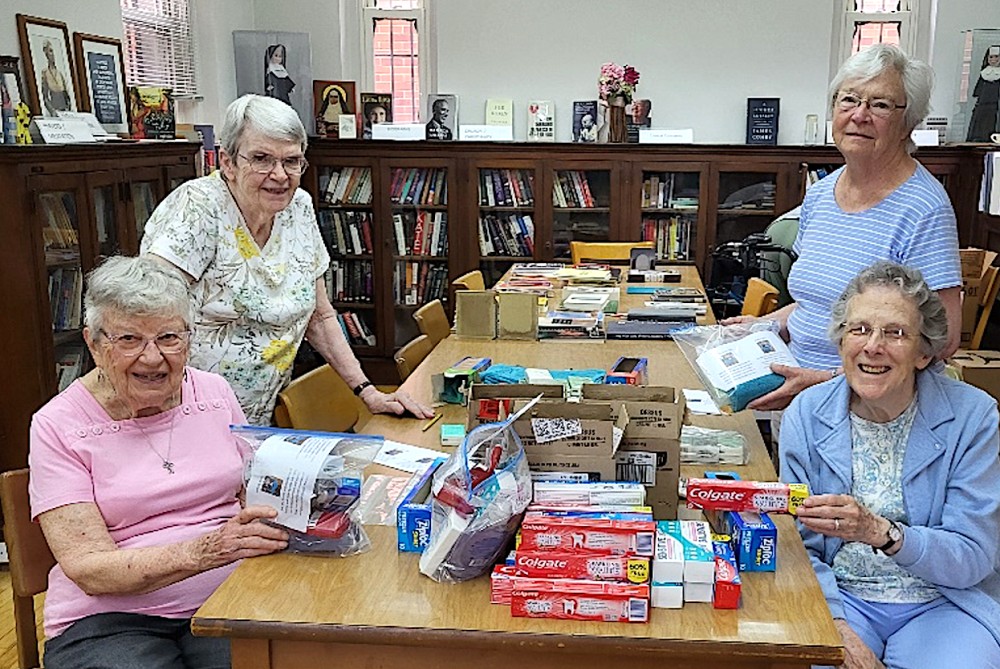
“It was difficult, even for policemen, to secure this road,” he added. “So, everybody wants to go to Cap-Haïtien on National Road 3.”
Still, gangs were unavoidable.
The bus the cousins were on, crammed with 50 passengers, was stopped twice at checkpoints by gunmen demanding “tolls,” Alain said.
The travel time, usually about five hours, was doubled, but the cousins eventually reached the airport.
“They finally arrived safe and sound at JFK after a stressful journey,” Sister Betty said. “With the suggestion of my [Cristo Rey] co-worker, I got the Sisters of Mercy involved in a ‘Welcome Packet’ project.”
The project aligned with their community’s “Mercy Focus on Haiti” initiative, which began in 2011. Since then, MFOH has partnered with Haitian people in developing four areas — agronomy, care for poor elderly, empowerment of women, and immersion experiences for others interested in being Mercy in Haiti.
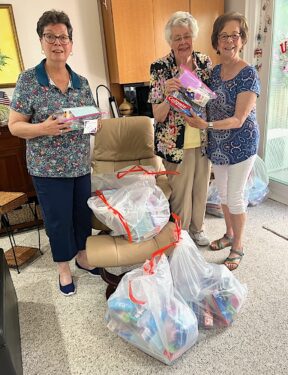
The sisters at their three homes assembled packages of toiletries and other comfort items, but the project grew beyond helping the cousins. Donations came from multiple sources.
For example, Sister Betty said students from Our Lady of Peace Catholic Academy in Lynbrook, Long Island, sent several boxes of items.
“We were able to prepare 123 packets of toiletries for refugee families and individuals,” she said.
They went to Flatbush-based Life of Hope, a social service non-profit serving the community, including newcomers from Haiti.
Sister Betty said the gift aligned with the sisters’ mission to serve weary immigrants displaced by natural disasters, political turmoil, or war.
Each packet, she noted, included a card with this message in English, French, and Creole: “We, the Sisters and Associates of Mercy, walk side-by-side with you, our Haitian brothers and sisters. May our offerings be a symbol of our prayers and support for you.”

